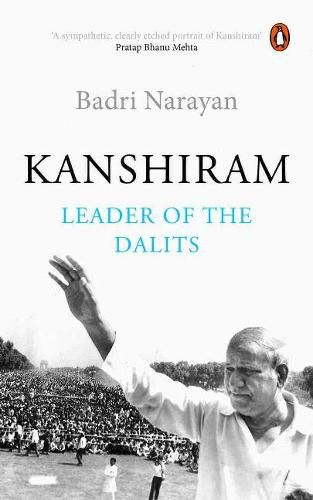Readings Newsletter
Become a Readings Member to make your shopping experience even easier.
Sign in or sign up for free!
You’re not far away from qualifying for FREE standard shipping within Australia
You’ve qualified for FREE standard shipping within Australia
The cart is loading…






Venerated as a Dalit icon, Kanshiram (1934-2006) is regarded as being next only to Ambedkar today. This book illuminates his journey, from the early years in rural Punjab and with Ambedkarites in Pune, to his launching BAMCEF, and eventually the Bahujan Samaj Party in 1984. Drawing on myriad oral and written sources, Badri Narayan shows how Kanshiram rouses Dalits’ self-respect with his homespun idiom, cycle rallies and, uniquely, the use of local folk myths. In contrast to Ambedkar, who sought to annihilate caste, Kanshiram forged Dalit identity as a source of political empowerment and struck opportunistic alliances with higher-caste parties – a vision that his protegee, Mayawati, continues to pursue. Narayan also describes Kanshiram’s extraordinary relationship with Mayawati, right until his death. Authoritative and insightful, this is a rare portrait of the man who changed the face of dalit society and, indeed, of Indian politics.
$9.00 standard shipping within Australia
FREE standard shipping within Australia for orders over $100.00
Express & International shipping calculated at checkout
Venerated as a Dalit icon, Kanshiram (1934-2006) is regarded as being next only to Ambedkar today. This book illuminates his journey, from the early years in rural Punjab and with Ambedkarites in Pune, to his launching BAMCEF, and eventually the Bahujan Samaj Party in 1984. Drawing on myriad oral and written sources, Badri Narayan shows how Kanshiram rouses Dalits’ self-respect with his homespun idiom, cycle rallies and, uniquely, the use of local folk myths. In contrast to Ambedkar, who sought to annihilate caste, Kanshiram forged Dalit identity as a source of political empowerment and struck opportunistic alliances with higher-caste parties – a vision that his protegee, Mayawati, continues to pursue. Narayan also describes Kanshiram’s extraordinary relationship with Mayawati, right until his death. Authoritative and insightful, this is a rare portrait of the man who changed the face of dalit society and, indeed, of Indian politics.